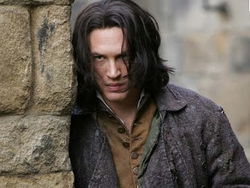
In order to gain more literary and historical context, please read the following articles online:
1. Overview of the Byronic Hero
http://teachers.sduhsd.k12.ca.us/sfarris/Files/AP%20Lit%20Files/Microsoft%20Word%20-%20Characteristics%20of%20the%20Byronic%20Hero.pdf
2. Overview of Romanticism
http://academic.brooklyn.cuny.edu/english/melani/cs6/rom.html
Considering both articles, as well as your assigned reading in Jane Eyre, please write a post that answers the following questions. To what extent can Rochester be considered a Byronic Hero? Which of these qualities are attractive to Jane? Which of these qualities push her away and/or contribute to her flight in Chapter 27? Please integrate direct quotes into your analysis. Please also reply to at least one of your classmates.
Length: 2-3 paragraphs for original post. 1-2 paragraphs for reply to classmate.
Due: Monday night (Jan 16), by midnight at the latest.
 RSS Feed
RSS Feed